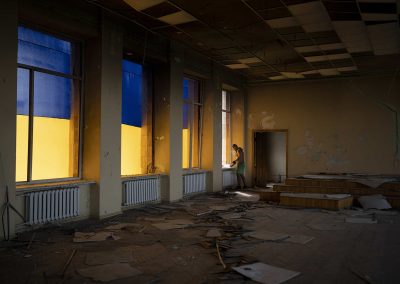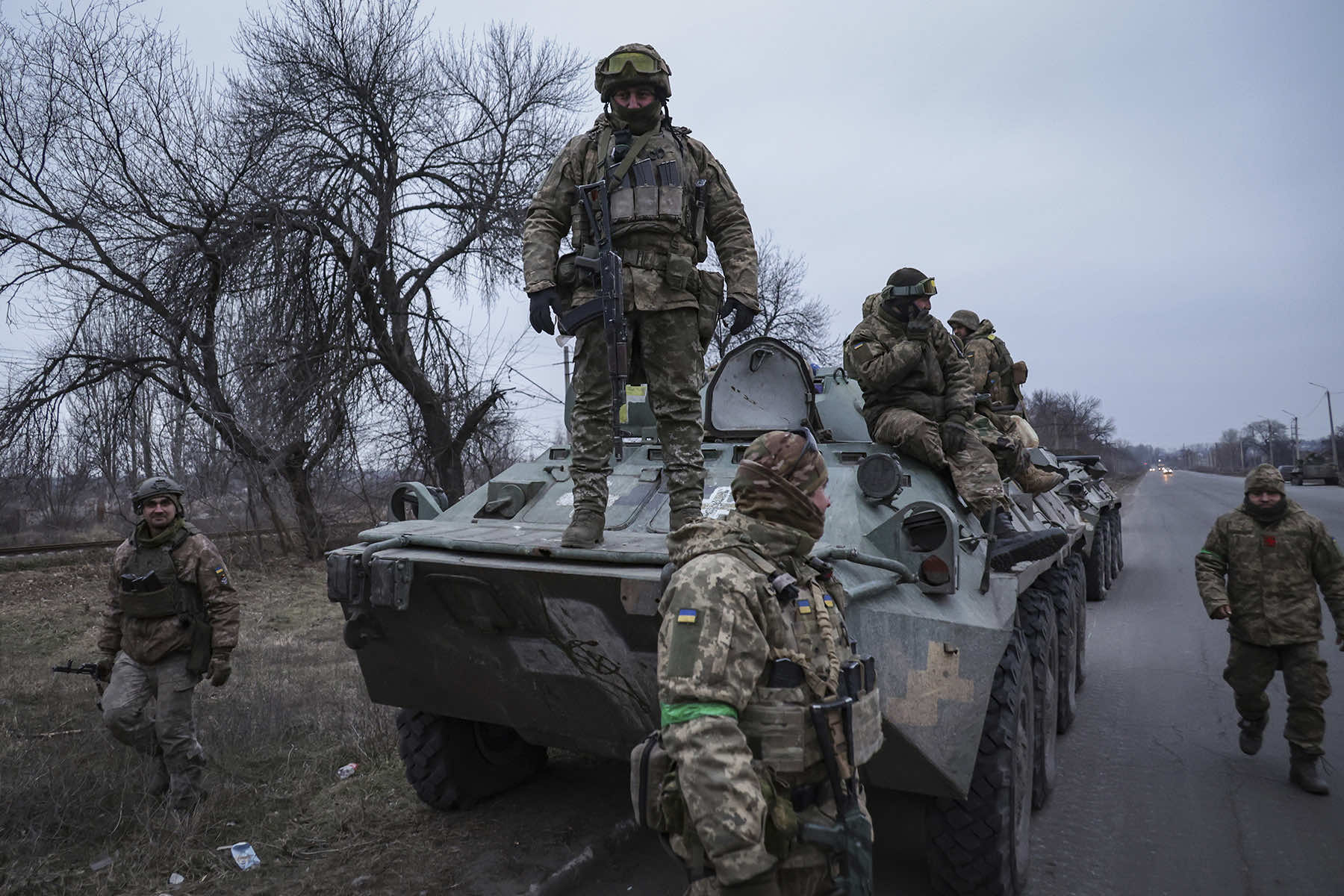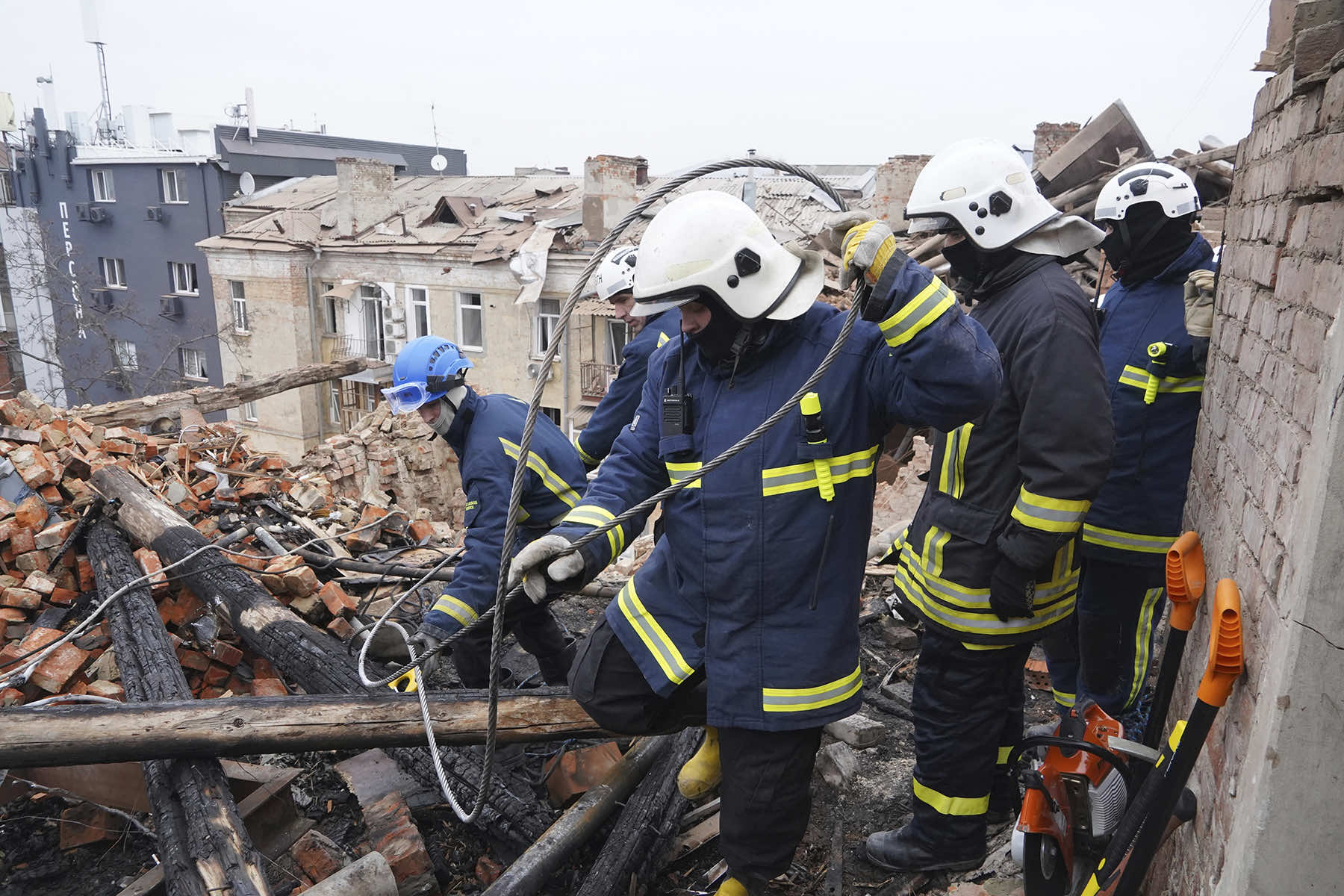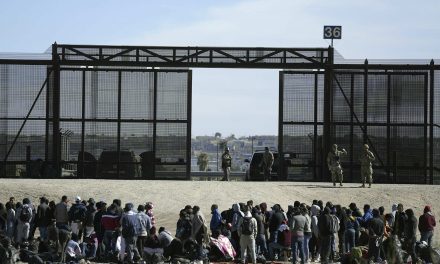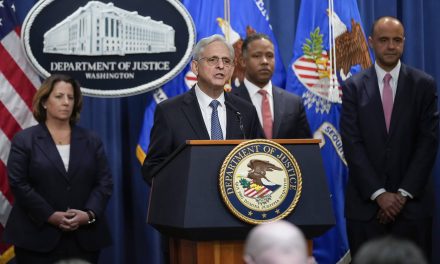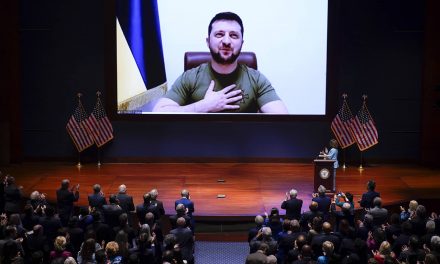
A deal to provide further U.S. assistance to Ukraine by year-end appears to be increasingly out of reach for President Joe Biden. The impasse is deepening in Congress despite dire warnings from the White House about the consequences of inaction as Republicans insist on pairing the aid with changes to America’s immigration and border policies.
After the president said he was willing to “make significant compromises on the border,” Republicans quickly revived demands that they had earlier set aside, hardening their positions and attempting to shift the negotiations to the right, according to a person familiar with the talks who was not authorized to publicly discuss them and spoke on condition of anonymity.
“Trading Ukrainian lives for the lives of asylum seekers is morally bankrupt and irresponsible,” Rep. Delia Ramirez, D-IL, posted on X, the platform formerly known as Twitter, as part of a coordinated campaign by Hispanic Democrats.
The latest proposal, from the lead GOP negotiator, Senator James Lankford, R-OK, came during a meeting with a core group of senators before they left Washington on December 7. It could force the White House to consider ideas that many Democrats will seriously oppose, throwing new obstacles in the difficult negotiations.
Biden is facing the prospect of a cornerstone of his foreign policy — repelling the brutal Russian dictator Vladimir Putin from overtaking Ukraine — crumbling as U.S. support for funding the war wanes, especially among Republicans – many who have made little secret of their financial allegiance to Putin’s puppet of criminally indicted ex-president Trump.
The White House sais a failure to approve more aid by year’s end could have catastrophic consequences for Ukraine and its ability to fight.
To preserve U.S. backing, the Biden administration has quietly engaged in Senate talks on border policy in recent weeks, providing assistance to the small group of senators trying to reach a deal and communicating what policy changes it would find acceptable.
The president is trying to satisfy GOP demands to reduce the historic number of migrants arriving at the Mexico-U.S. border while alleviating Democrats’ fears that legal immigration will be choked off with drastic measures.
Democrats have warned Republicans that time for a deal was running short. Congress is scheduled to depart Washington in mid-December for a holiday break.
“Republicans need to show they are serious about reaching a compromise, not just throwing on the floor basically Donald Trump’s border policies,” Senate Majority Leader Chuck Schumer, D-NY, said on December 7 before Republicans made their counteroffer.
But the new Republican proposal dug in on policy changes that had led Democrats to step back from the negotiations, according to the person familiar with the talks. The GOP offer calls for ending the humanitarian parole program that is now in place for existing classes of migrants — Ukrainians, Afghans, Cubans, Venezuelans, Nicaraguans, and Haitians. That idea had been all but dashed before.
Additionally, those groups of migrants would not be allowed to be paroled again if the terms of their stay expire before their cases are adjudicated in immigration proceedings.
GOP senators proposed monitoring systems such as ankle bracelets for people, including children, who are detained at the border and are awaiting parole. Republicans want to ban people from applying for asylum if they have transited through a different country where they could have sought asylum instead. GOP lawmakers also want to revive executive powers that would allow a president to shut down entries for wide-ranging reasons.
In addition, the GOP proposal would set new guidelines requiring the border to be essentially shut down if illegal crossings reach a certain limit.
Senators had made some progress in the talks before December 7, finding general agreement on raising the initial standard for migrants to enter the asylum system — part of what is called the credible fear system.
The administration has communicated that it is amenable to that change and that it could agree to expand expedited removal to deport immigrants before they have a hearing with an immigration judge, according to two people briefed on the private negotiations who spoke on the condition of anonymity.
Immigration advocates and progressives in Congress have been alarmed by the direction of the talks, especially because they have not featured changes aimed at expanding legal immigration.
Robyn Barnard, director of refugee advocacy with Human Rights First, called the current state of negotiations an “absolute crisis moment.” She warned that broadening the fast-track deportation authority could lead to a mass rounding up of immigrants around the country and compared it to the situation during the Trump administration. “Communities across the country would be living in fear,” she said.
After every GOP senator voted not to move ahead with legislation that would provide tens of billions of dollars in military and economic assistance for Ukraine, many in the chamber were left in a dour mood. Even those who held out hope for a deal acknowledged it would be difficult to push a package through the Senate at this late stage.
Even if senators reach a deal, the obstacles to passage in the House are considerable. Speaker Mike Johnson, R-LA, has signaled he will fight for sweeping changes to immigration policy that go beyond what is being discussed in the Senate. Also, broad support from House Democrats is far from guaranteed, as progressives and Hispanic lawmakers have raised alarm at curtailing access to asylum.
The unwieldy nature of the issue left even Lankford, who was one of the few senators optimistic that a deal could be reached this year, acknowledging the difficulty of finding an agreement in the coming days.
“There’s just a whole lot of politics that have been bound up in this,” he said. “For thirty years it hasn’t been resolved, because it’s incredibly complicated.”




